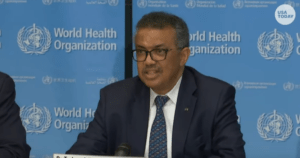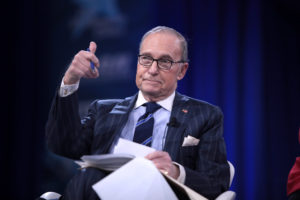Poverty Wrecks the Mind, Not Just the Wallet
Research conducted over the last two decades lends powerful credence to the claim that chronic poverty cripples an individual's ability to make sound financial choices, with each decision exacting a "psychic cost" that diminishes the mental fortitude needed to make subsequent tough choices. (more)
Research conducted over the last two decades lends powerful credence to the claim that chronic poverty cripples an individual’s ability to make sound financial choices, with each decision exacting a “psychic cost” that diminishes the mental fortitude needed to make subsequent tough choices.
As Jamie Holmes, writing in The New Republic, says, the research results — which are likely not to be as revelatory to the psychological community as they are to the general public — demand a radical rethinking of official U.S. social policy governing the kind of assistance we offer to the poor. –ARK
Your support matters…The New Republic:
In the 1990s, social psychologists developed a theory of “depletable” self-control. The idea was that an individual’s capacity for exerting willpower was finite—that exerting willpower in one area makes us less able to exert it in other areas. In 1998, researchers at Case Western Reserve University published some of the young movement’s first returns. Roy Baumeister, Ellen Bratslavsky, Mark Muraven, and Dianne Tice set up a simple experiment. They had food-deprived subjects sit at a table with two types of food on it: cookies and chocolates; and radishes. Some of the subjects were instructed to eat radishes and resist the sweets, and afterwards all were put to work on unsolvable geometric puzzles. Resisting the sweets, independent of mood, made participants give up more than twice as quickly on the geometric puzzles. Resisting temptation, the researchers found, seemed to have “produced a ‘psychic cost.’”
Over the intervening 13 years, these results have been corroborated in more than 100 experiments. Researchers have found that exerting self-control on an initial task impaired self-control on subsequent tasks: Consumers became more susceptible to tempting products; chronic dieters overate; people were more likely to lie for monetary gain; and so on. As Baumeister told Teaching of Psychology in 2008, “After you exert self-control in any sphere at all, like resisting dessert, you have less self-control at the next task.”
… Nowhere is this revelation more important than in our efforts to understand poverty. Taking this model of willpower into the real world, psychologists and economists have been exploring one particular source of stress on the mind: finances. The level at which the poor have to exert financial self-control, they have suggested, is far lower than the level at which the well-off have to do so. Purchasing decisions that the wealthy can base entirely on preference, like buying dinner, require rigorous tradeoff calculations for the poor. As Princeton psychologist Eldar Shafir formulated the point in a recent talk, for the poor, “almost everything they do requires tradeoff thinking. It’s distracting, it’s depleting … and it leads to error.” The poor have to make financial tradeoff decisions, as Shafir put it, “on anything above a muffin.”
Independent journalism is under threat and overshadowed by heavily funded mainstream media.
You can help level the playing field. Become a member.
Your tax-deductible contribution keeps us digging beneath the headlines to give you thought-provoking, investigative reporting and analysis that unearths what's really happening- without compromise.
Give today to support our courageous, independent journalists.






You need to be a supporter to comment.
There are currently no responses to this article.
Be the first to respond.